
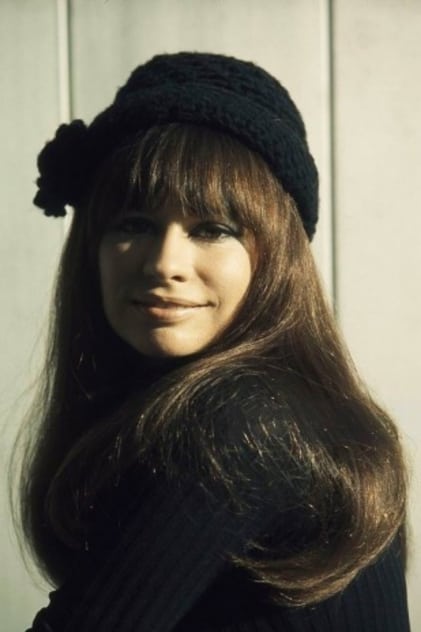
Astrud Gilberto
Born: March 29, 1940
Died: June 5, 2023
in Salvador, Bahia, Brazil
Died: June 5, 2023
in Salvador, Bahia, Brazil
Astrud Gilberto (born Astrud Evangelina Weinert, 29 March 1940 - 5 June 2023) was a Brazilian samba and bossa nova singer. She gained international attention in the 1960s following her recording of the song "The Girl from Ipanema".
Astrud Gilberto was born Astrud Evangelina Weinert, the daughter of a Brazilian mother and a German father, in the state of Bahia, Brazil. She was raised in Rio de Janeiro. Her father was a language professor, and she became fluent in several languages. She married João Gilberto in 1959 and had a son, João Marcelo Gilberto, who later joined her band. Astrud and João divorced in the mid-1960s. She has another son from a second marriage, Gregory Lasorsa, who also played with his mother. Later she began a relationship with her husband's musical collaborator, American jazz saxophone player Stan Getz. She immigrated to the United States in 1963, residing in the U.S. from that time.
She sang on two tracks on the 1963 album Getz/Gilberto featuring João Gilberto, Stan Getz, and Antônio Carlos Jobim. While it was her first professional recording, Astrud "wasn’t a complete novice. She grew up steeped in music (her mother Evangelina Neves Lobo Weinert played multiple instruments) and sang regularly with her husband in Brazil, including in a concert at the Faculdade de Arquitetura, part of one of Rio de Janeiro’s top universities." Her "beguiling, whispery voice" and steadfast approach to singing played a significant role in popularizing "The Girl from Ipanema", earning a Grammy for Song of the Year and a nomination for Best Vocal Performance by a female.
The 1964 edited single of "The Girl from Ipanema" omitted the Portuguese lyrics sung by João Gilberto, and established Astrud Gilberto as a Bossa Nova singer. It sold over one million copies and was awarded a gold disc. For the recording, it is reported Astrud only ever received the standard session fee, $120. However, according to Gene Lees in Singers and the Song II, Getz asked producer Creed Taylor to ensure she was paid nothing. In 1964, Gilberto appeared in the films Get Yourself a College Girl and The Hanged Man. Her first solo album was The Astrud Gilberto Album (1965). Upon moving to the United States, she went on tour with Getz. Beginning as a singer of bossa nova and American jazz standards, Gilberto started to record her own compositions in the 1970s. She has recorded songs in Portuguese, English, Spanish, Italian, French, German, and Japanese.
In 1982, Gilberto's son Marcelo joined her group, touring with her for more than a decade as bassist. In addition, he collaborated as co-producer of the albums Live in New York (1996) and Temperance (1997). Her son Gregory Lasorsa played guitar on the Temperance album on the song "Beautiful You", which features singer Michael Franks. ...
Source: Article "Astrud Gilberto" from Wikipedia in English, licensed under CC-BY-SA 3.0.
Astrud Gilberto was born Astrud Evangelina Weinert, the daughter of a Brazilian mother and a German father, in the state of Bahia, Brazil. She was raised in Rio de Janeiro. Her father was a language professor, and she became fluent in several languages. She married João Gilberto in 1959 and had a son, João Marcelo Gilberto, who later joined her band. Astrud and João divorced in the mid-1960s. She has another son from a second marriage, Gregory Lasorsa, who also played with his mother. Later she began a relationship with her husband's musical collaborator, American jazz saxophone player Stan Getz. She immigrated to the United States in 1963, residing in the U.S. from that time.
She sang on two tracks on the 1963 album Getz/Gilberto featuring João Gilberto, Stan Getz, and Antônio Carlos Jobim. While it was her first professional recording, Astrud "wasn’t a complete novice. She grew up steeped in music (her mother Evangelina Neves Lobo Weinert played multiple instruments) and sang regularly with her husband in Brazil, including in a concert at the Faculdade de Arquitetura, part of one of Rio de Janeiro’s top universities." Her "beguiling, whispery voice" and steadfast approach to singing played a significant role in popularizing "The Girl from Ipanema", earning a Grammy for Song of the Year and a nomination for Best Vocal Performance by a female.
The 1964 edited single of "The Girl from Ipanema" omitted the Portuguese lyrics sung by João Gilberto, and established Astrud Gilberto as a Bossa Nova singer. It sold over one million copies and was awarded a gold disc. For the recording, it is reported Astrud only ever received the standard session fee, $120. However, according to Gene Lees in Singers and the Song II, Getz asked producer Creed Taylor to ensure she was paid nothing. In 1964, Gilberto appeared in the films Get Yourself a College Girl and The Hanged Man. Her first solo album was The Astrud Gilberto Album (1965). Upon moving to the United States, she went on tour with Getz. Beginning as a singer of bossa nova and American jazz standards, Gilberto started to record her own compositions in the 1970s. She has recorded songs in Portuguese, English, Spanish, Italian, French, German, and Japanese.
In 1982, Gilberto's son Marcelo joined her group, touring with her for more than a decade as bassist. In addition, he collaborated as co-producer of the albums Live in New York (1996) and Temperance (1997). Her son Gregory Lasorsa played guitar on the Temperance album on the song "Beautiful You", which features singer Michael Franks. ...
Source: Article "Astrud Gilberto" from Wikipedia in English, licensed under CC-BY-SA 3.0.
Movies for Astrud Gilberto...
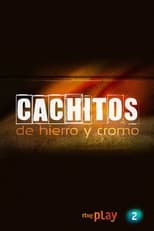
Title: Cachitos de hierro y cromo
Character: Self (archive footage)
Released: October 27, 2013
Type: TV
Cachitos de hierro y cromo is a Spanish musical-themed documentary program, directed by Jero Rodríguez and hosted by Virginia Díaz. It is an unapologetic musical display of RTVE's sound legacy in the form of performances on the set of programs such as 'Aplauso', 'Galas del Sábado', 'Mapa Sonoro', 'Zona Franca' or 'Los Conciertos de Radio 3'. For nearly 60 years, artists and other specimens have stormed viewers' screens. The result is a polyphony of images and memories that includes everything from James Brown to Camela, from Perales to REM, from Gabinete to Violent Femmes. And so all the time. Our secret weapon has been the historical archive of TVE, the repository of Spanish collective memory for more than half a century.

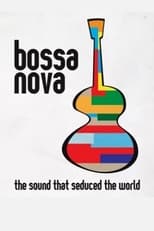
Title: Bossa Nova: the sound that seduced the world
Character: Self
Released: July 29, 2008
Type: Movie
Mixing Samba, Jazz and sophisticated lyricism, the sultry Bossa Nova sound was spawned in the beaches and bars of Rio, Brazil in the late '50s, and quickly seduced the world when anthems like 'The Girl from Ipanema' became huge international hits. This compelling documentary, filmed on location in Rio, and featuring rare live clips of Bossa legends' Tom Jobim and Astrud Gilberto, traces the legacy of the seductive Bossa Nova sound through interviews with the key players from the era including Sergio Mendes, Carlos Lyra and Paulo Jobim.

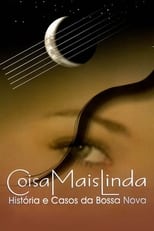
Title: Coisa Mais Linda - Histórias e Casos da Bossa Nova
Character: Self (archive footage)
Released: January 1, 2005
Type: Movie
Documentary about the birth of bossa-nova, in Brazil, and the major stars of this musical style.



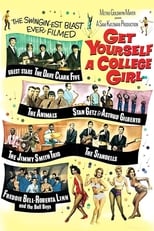
Title: Get Yourself a College Girl
Character: Astrud Gilberto
Released: December 18, 1964
Type: Movie
A young music student faces expulsion after her instructors learn she is moonlighting as a pop-music writer.

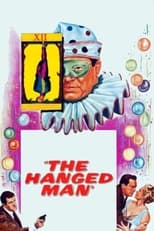
Title: The Hanged Man
Character: Self
Released: November 18, 1964
Type: Movie
A gunman whose best friend has been murdered enacts a plan to blackmail the corrupt labor union leader responsible but finds he isn't the only one after his money.

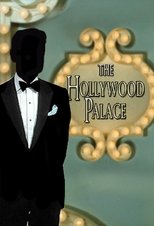
Title: The Hollywood Palace
Character: Self - Singer
Released: January 4, 1964
Type: TV
The Hollywood Palace is an hour-long American television variety show that was broadcast weekly on ABC from January 4, 1964 to February 7, 1970. Originally titled The Saturday Night Hollywood Palace, it began as a mid-season replacement for The Jerry Lewis Show, another variety show which had lasted only three months. It was staged in Hollywood at the former Hollywood Playhouse on Vine Street, which was renamed The Hollywood Palace during the show's duration and is today known as Avalon Hollywood. A little-known starlet named Raquel Welch was cast during the first season as the "Billboard Girl", who placed the names of the acts on a placard.

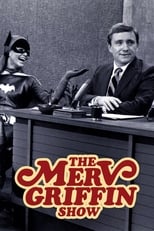
Title: The Merv Griffin Show
Character: Self
Released: October 1, 1962
Type: TV
The Merv Griffin Show is an American television talk show, starring Merv Griffin. The series ran from October 1, 1962 to March 29, 1963 on NBC, September 20, 1965 to August 15, 1969 in first-run syndication, from August 18, 1969 to February 11, 1972 at 11:30 PM ET weeknights on CBS and again in first-run syndication from February 14, 1972 to September 5, 1986.


Title: The Mike Douglas Show
Character: Self
Released: December 11, 1961
Type: TV
The Mike Douglas Show is an American daytime television talk show hosted by Mike Douglas that originally aired only in the Cleveland area during much of its first two years on the air. It then went into syndication in 1963 and remained on television until 1982. It was distributed by Westinghouse Broadcasting and for much of its run, originated from studios of two of the company's TV stations in Cleveland and Philadelphia.

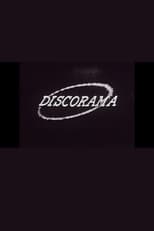

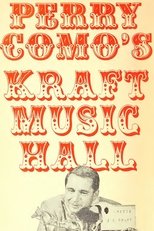
Title: Kraft Music Hall
Character: Self
Released: October 8, 1958
Type: TV
Kraft Music Hall is an umbrella title for several television series aired by NBC in the United States from the 1950s to the 1970s in the musical variety genre, sponsored by Kraft Foods, the producers of a well-known line of cheeses and related dairy products. Their commercials were usually announced by "The Voice of Kraft", Ed Herlihy.
